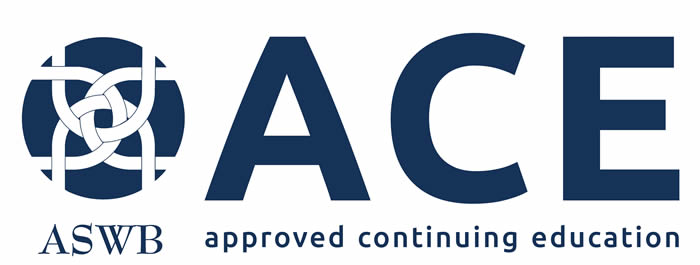
COURSE CREDITS & HOURS
14 AMA PRA Category 1 Credits™14 ACPE Credits
14.0 Contact Hours
14 CE Credits for Psychologists
14 ASWB ACE Credits
14 CE Credits for Psychologists
5½ Hours of Pharmacology for NPs
COURSE FEES
TARGET AUDIENCE
PROGRAM PURPOSE
Current Topics in Addiction Medicine
Substance use disorders (SUDs) carry significant personal and societal costs. Patients with SUDs have more physical health problems and SUDs complicate management of other chronic diseases in general medical practice. However, individuals with SUDs are often not identified and not treated in the general medical settings. Referring such patients to separate behavioral healthcare setting results in the vast majority not receiving care. Primary care setting is usually the first and often the only contact that these patients have with medical providers.SUDs can be identified and successfully treated by primary care providers without need for referral to addiction specialists. Providing primary medical care to individuals with SUDs enhances their recovery from SUD, improves their overall health, and decreases healthcare costs. The National Drug Control Strategy asserts that addiction treatment should be integrated into mainstream health care, however, graduate and post-graduate medical education is generally insufficient to adequately prepare medical providers to manage SUDs at the level of primary medical specialties. Training of medical professionals using CME framework can target gaps in knowledge and skills and improve the rates of recognition and treatment of SUDs.
This series of interactive lectures will provide participants with the latest evidence on the strategies to recognize and effectively manage individuals with opioid, tobacco, alcohol, stimulant, sedative-hypnotic, and cannabis-related disorders. Presented material will be illustrated with cases from the primary care setting with opportunities for the audience to problem-solve cases and to practice clinical skills. Throughout presentations we will discuss how to implement the new information and skills in the daily clinical practice of participants to improve patient care.
Topics:
- Addiction as a brain disease and a model for management
- Recognize the nature of abnormal behavior characterizing addiction and how it results in a chronic and relapsing medical/behavioral disorder.
- Screening, evaluation, and diagnosis of substance use problems
- Apply screening tools and techniques needed to discuss substance use with their patients, influence them to accept treatment, and refer them knowledgeably to a specialized addiction treatment when appropriate
- Managing opioid use disorder in the medical office
- Demonstrate skills to evaluate and discuss with patient available medications to treat OUD and to initiate pharmacological treatment in the general medicine setting and to counsel patients on overdose prevention
- Managing tobacco and alcohol use disorders
- Counsel patients about benefits of medical treatments for tobacco and alcohol use disorders and effectively use medications to help patients reduce or stop using these substances.
- Safe prescribing of controlled substances in general practice: prescription psychostimulants and sedative-hypnotics
- Safe prescribing of controlled substances in general practice: prescription psychostimulants and sedative-hypnotics
- Managing cannabis use and cannabis use disorder
- Implement a plan to assess and address cannabis use in patients who are treated for other medical and psychiatric disorders.
- Psychosocial strategies in working with substance-using patients: brief intervention, motivational interviewing, and cognitive-behavioral techniques
- Demonstrate how to engage in treatment patients with little motivation to change and how to work with patients who are interested in stopping abusing substances
Current Topics in Primary Care & Palliative Care
- Osteoporosis
- Be comfortable screening, diagnosing and treating Osteoporosis with the medications available.
- Dementia
- Be familiar with the work up, how to distinguish the various causes of Dementia, and how it is treated.
- Choosing Wisely
- Become familiar with the concept of judicious ordering of tests and procedures, as is relevant to different specialties.
- Case Studies in Primary Care
- Participate in an interactive session to try and diagnose some common diseases with atypical presentations
- Hospice and Palliative Care
- To understand Hospice and Palliative care, which patients are appropriate and how they are managed with case studies.
- Common Outpatient Presentations in Primary Care
- Learn to evaluate and treat some common outpatient presentations without having to consult a specialist.
- Impaired Health Care Providers
- Become familiar with how to identify Impaired Health Care Providers and how to get them the help they need, confidentially.
















 Credit Designation for Social Workers: As a Jointly Accredited Organization, Continuing Education, Inc is approved to offer social work continuing education by the Association of Social Work Boards (ASWB) Approved Continuing Education (ACE) program. Organizations, not individual courses, are approved under this program. Regulatory boards are the final authority on courses accepted for continuing education credit. Social workers completing this course receive 14 Clinical continuing education credits.
Credit Designation for Social Workers: As a Jointly Accredited Organization, Continuing Education, Inc is approved to offer social work continuing education by the Association of Social Work Boards (ASWB) Approved Continuing Education (ACE) program. Organizations, not individual courses, are approved under this program. Regulatory boards are the final authority on courses accepted for continuing education credit. Social workers completing this course receive 14 Clinical continuing education credits.










